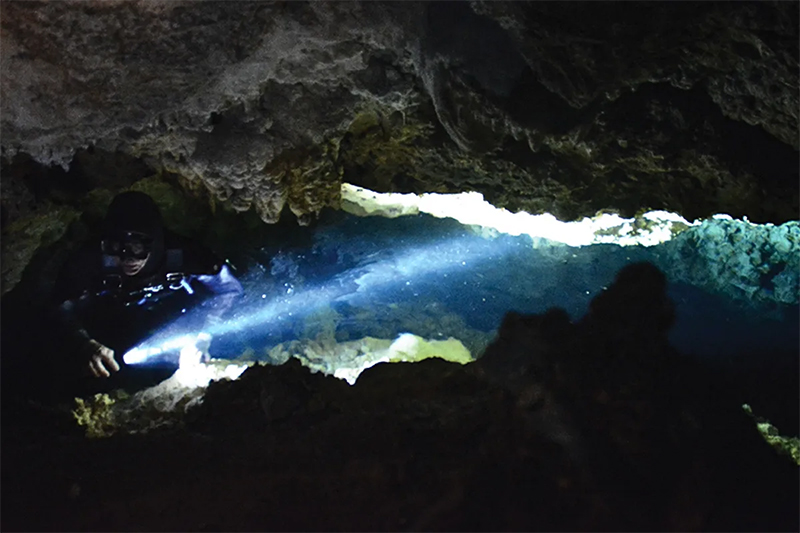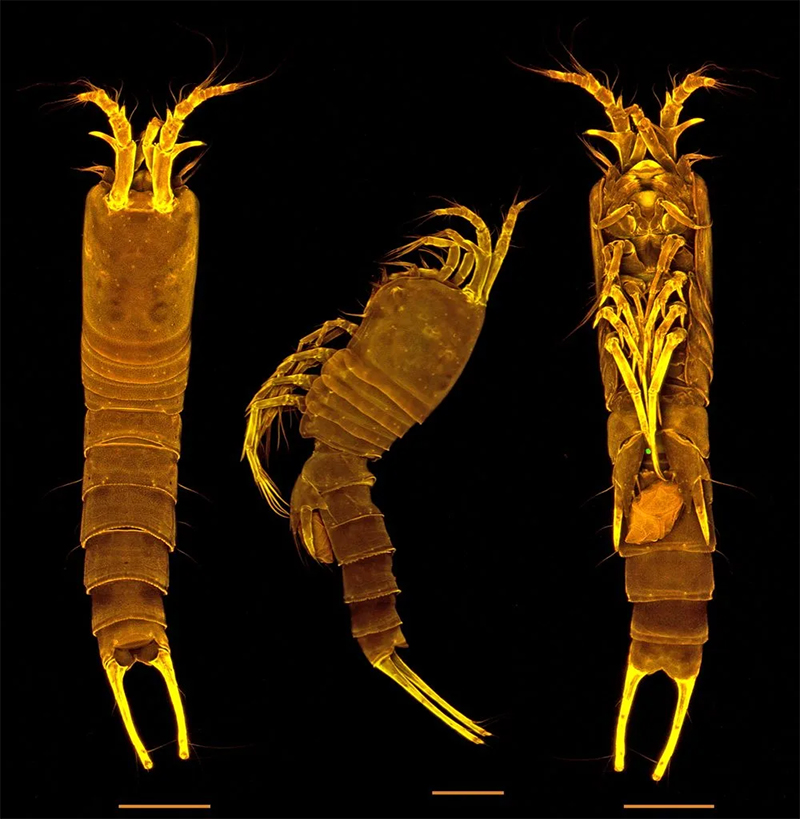New Crustacean Species Discovered In Bermuda
A team of scientists has discovered a new species of crustacean living deep within the limestone caves of Bermuda, according to a report by Discover Wildlife.
The story said, “The cave-dwelling animal, which is new to science, highlights the fragility of the island’s subterranean habitats, say scientists.
“The tiny copepod – a group of small crustaceans that live in nearly every freshwater and saltwater habitat on the planet – was found on a research trip into Roadside Cave, a tidal cavern in Walsingham District on the north-east coast of the island.
“After studying the creature, the team say that their findings, published recently in the journal ZooKeys, shine a light on the extraordinary and often fragile biodiversity hidden within Bermuda’s subterranean environments.
Photo courtesy of Daniel Graham
A rare find in a secret world
“Copepods are some of the most widespread and abundant crustaceans in the world, forming a vital part of aquatic food webs.
“But while many live in open seas, lakes and ponds, some species are found in more obscure habitats – such as Bermuda’s caves.
“The new species was collected in 2016, but it wasn’t until a detailed analysis in 2024 that scientists confirmed it was entirely new to science. Only a single female, carrying eggs, was found – suggesting it may be extremely rare or limited to just a small area. The researchers named it Tetragoniceps bermudensis.
“The new species of copepod crustacean, Tetragoniceps bermudensis, is the first of its genus from Bermuda, as well as the first known cave-dwelling species of the genus anywhere in the world and only the second within its family, Tetragonicipitidae,” says lead author Giovanni Mussini from the University of Cambridge.
“This finding from Roadside Cave adds to the great diversity of endemic crustaceans [and other cave fauna] found in the island’s network of limestone caves.”
“Bermuda’s cave systems are home to species found nowhere else on Earth, many of them thought to be ancient survivors from a time when sea levels and ecosystems were very different. These animals have evolved in isolation, often without natural predators or competitors.
“Like other creatures in Bermuda’s subterranean world, Tetragoniceps bermudensis could represent an early evolutionary offshoot, preserved in the stable, undisturbed conditions of the cave over millennia, say the researchers.
Transparent when alive, the new species of crustacean [Tetragoniceps bermudensis] has a smooth body made up of numerous segments. Credit: Mussini et al.
Read the full story here on the Discover Wildlife website.
Read More About
Category: All, Environment, News





Just a baby Lobster from 400+ years at Tom Moores.